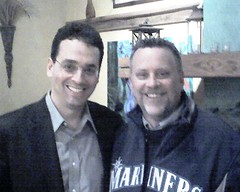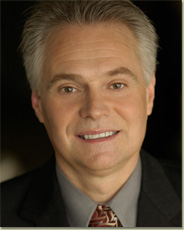Dr. Neal Barnard`s Program for Reversing Diabetes. Dr. Neal D Bernard.
Dr. Neal Barnard`s Program for Reversing Diabetes. Dr. Neal D Bernard. 2007. ISBN 9781594865282. I am always trying to hack my body to beat back diabetes. So far I have had lots of success. However Bernard talks about reversing diabetes without using drugs, which really piqued my interest. He is the first for me to have made a compelling argument as to why pre- diabetics like me can plateau. He advocates for those who are still having a struggle with diet and cholesterol etc to adopt a more aggressive vegetarian approach. He wants us to eliminate dairy and meat protein., since even lean chicken and fish still contain fat, lots of it = cholesterol . I have been moving along with the low GI starch complex foods, eating more beans, vegetable protein and lots of fruits & veggies. So to quit meat, eggs & dairy etc was not a big step. The benefits of doing this while in this really warm climate is that I immediately stopped heating up after meals and feeling so stuffed for hours, plus fruits and veggies are really cheap and plentiful. I feel great. I have been eating my face off with fruits, beans, veggies, corn tortillas etc, along with beer and have lost weight, without having access to my daily at home weight and aerobics regimes ( Its too damn hot, anyway) . The book is a bit repetitive , but it contains some good recipes and tips on where to get stuff. All in all, I am enjoying the change.
Related articles
- Pathfinder Cells Demonstrate Ability to Regenerate Damaged Tissue and Restore Pancreatic Function in a Diabetic Mouse Model (nextbigfuture.com)
- Tim Gunn Ellen DeGeneres PETA People Of The Year 2009 (popcrunch.com)
- The War on Carbohydrates (diabetesdaily.com)
- Success Story of the Week: Anastasia (theplantrx.com)
- Educational Documentaries (hefia.wordpress.com)
- Cinnamon for Diabetes? A Half Teaspoon A Day Could Help Control Cholesterol (jaymurdock.wordpress.com)
- The pH Miracle For Diabetes. The revolutionary diet plan for type 1 and type 2 diabetics. Robert O. Young (Dr.) & Shelly Redford Long. (regnordman.com)
- Dr. Neal Barnard’s new program “Kickstart Your Health” on ETV (renees6weekjournal.wordpress.com)

Category: Health
Drive. The Surprising Truth About What Motivates Us. Dan Pink
Drive. The Surprising Truth About What Motivates Us. Dan Pink. 2011. 978-1594488849. A fitting successor to Mihaly Csikszentmihalyi`s Flow and Good Business , this is a useful book for those of us trying to optimize our efforts and productivity. Lots of challenges to popular myths on motivation in this book. I appreciated his differentiation between motivating for the very simple repetitive tasks and the more complex. (I agree with him that no one can motivate anyone – people only motivate themselves. He brings up the de-motivating effect off paying for tasks, vs separating the cash from the intrinsic performance high. We certainly see how some people get trapped by the cash and the toys – losing sight of the satisfaction of basic achievement. This is an easy compelling read, yet it does not treat the subject lightly. There are some deep implications here for sales force compensation schemes. (This is the first non fiction book I have only read on a Kindle – it takes me a whole lot longer to do and is not as pleasant an experience for me).
Related articles
- What motivates us? (timragan.wordpress.com)
- There are two kinds of people in the world … (Dan Pink) (simplicityisbliss.com)
- Money Motivated Salespeople a Dying Breed (customerthink.com)
- “Meaning” is the New Money (abhishekmittal.com)
- Incentives Matter (timragan.wordpress.com)
- Ken Robinson: Changing Education Paradigms (RSAnimate) (climbtothestars.org)

Category: Leadership, Lifeskills, Sales Effectiveness




